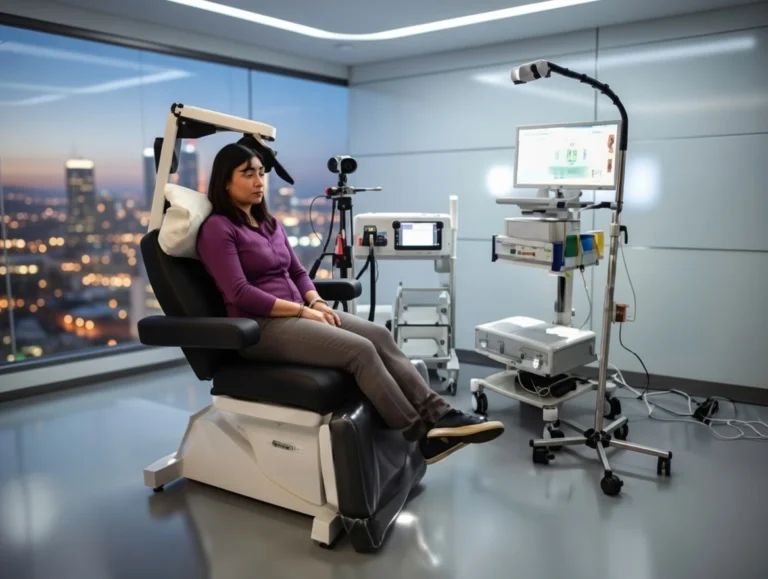
Equillium and Biocon Announce Promising Phase 2 Results for Itolizumab in Moderate to Severe Ulcerative Colitis
Equillium a clinical-stage biotechnology company focused on developing novel therapeutics for severe autoimmune and inflammatory disorders, and Biocon Limited a global leader in innovation-driven biopharmaceuticals, have announced positive topline results from their Phase 2 study evaluating in patients with moderate to severe ulcerative colitis (UC). The double-blinded, placebo- and active-controlled trial demonstrated the safety and efficacy of offering new hope for patients living with this debilitating condition.
The Phase 2 clinical study enrolled 90 biologic-naïve patients with moderate to severe active UC, who were randomized 1:1:1 to receive either itolizumab (a fixed dose of 140 mg), placebo, or adalimumab (a widely used biologic treatment serving as an active control) every two weeks over an initial 12-week treatment period. The primary endpoint was clinical remission, as measured by the Total Mayo Score, while secondary endpoints included the proportion of participants achieving clinical response and endoscopic remission, evaluated through central endoscopy. Conducted at multiple clinical trial sites across India, the study was co-sponsored by Equillium and Biocon Limited and designed in collaboration with the gastroenterology community and leading global experts in inflammatory bowel disease (IBD).
A Novel Approach Targeting the CD6-ALCAM Pathway
Ulcerative colitis is a chronic inflammatory bowel disease characterized by gastrointestinal inflammation that significantly impacts patients’ quality of life. Current treatments often fall short in achieving long-term remission or are associated with significant side effects. Itolizumab, a first-in-class monoclonal antibody targeting the CD6-ALCAM pathway, represents a novel therapeutic approach. This pathway plays a critical role in immune cell activation and trafficking, and its dysregulation has been linked to the severity of gastrointestinal inflammation in both ulcerative colitis and Crohn’s disease.
“The CD6-ALCAM pathway is elevated in gastrointestinal inflammation and is associated with disease severity in both ulcerative colitis and Crohn’s patients,” said Dr. Stephen Connelly, Chief Scientific Officer at Equillium. “We are delighted with the strength of data across the primary and secondary endpoints of this Phase 2 study in moderate to severe ulcerative colitis patients.”
Itolizumab achieved a clinical remission rate of 23 percent in the study, despite an imbalance of more severe patients in the itolizumab arm compared to the other groups. These findings underscore the potential of itolizumab as a safe and effective treatment option for UC patients. Importantly, these results contribute to the growing body of evidence supporting itolizumab’s efficacy and safety across diverse patient populations.
Positive Outcomes and Clinical Implications
The Phase 2 study demonstrated that itolizumab not only met its primary endpoint but also showed meaningful efficacy in secondary measures. Notably, itolizumab’s performance was comparable to adalimumab, a well-established biologic standard of care, highlighting its potential as a differentiated treatment option in the UC landscape.
“Itolizumab demonstrated proof of concept with a meaningful effect size – comparable to biologic standard of care adalimumab – in this Phase 2 study in subjects with moderate to severe ulcerative colitis,” said Dr. Brian Feagan, Professor of Medicine at the Schulich School of Medicine & Dentistry at the University of Western Ontario. “Itolizumab represents a novel selective immune-modifying mechanism of action with great potential in a treatment paradigm needing differentiation and improved outcomes for patients.”
Dr. Feagan’s comments emphasize the significance of itolizumab’s unique mechanism of action, which selectively modulates the immune system without broadly suppressing it. This targeted approach could offer a safer alternative to existing therapies, particularly for patients who experience adverse effects or inadequate responses to current treatments.
Broader Implications for Itolizumab in Autoimmune Disorders
While the Phase 2 study focused on ulcerative colitis, the positive results have broader implications for itolizumab’s development in other autoimmune and inflammatory conditions. Equillium is currently conducting the Phase 3 EQUATOR study to evaluate itolizumab in acute graft-versus-host disease (aGVHD), a life-threatening complication of allogeneic stem cell transplantation. Lower gastrointestinal involvement is a key driver of mortality in aGVHD, making the Phase 2 UC data particularly relevant.
“We are particularly encouraged by this data in the context of our Phase 3 EQUATOR study in acute graft-versus-host disease, where lower gastrointestinal pathogenesis is a key driver of mortality, with topline data expected this quarter,” added Dr. Connelly.
The potential for itolizumab to address unmet needs in both UC and aGVHD underscores its versatility and therapeutic promise. By targeting the CD6-ALCAM pathway, itolizumab offers a novel mechanism of action that could transform treatment paradigms across multiple diseases.
Collaborative Efforts and Global Expertise
The success of the Phase 2 study is a testament to the collaborative efforts of Equillium and Biocon Limited, as well as the input of the global gastroenterology and IBD communities. The trial’s design and execution involved close collaboration with leading clinical and scientific experts, ensuring rigorous standards and alignment with real-world patient needs. Conducted across multiple sites in India, the study also highlights the growing importance of international research partnerships in advancing innovative therapies.
Biocon Limited’s expertise in biologics development and manufacturing, combined with Equillium’s deep understanding of immunobiology, has created a powerful synergy driving itolizumab’s progress. This partnership exemplifies how collaboration between biotech and pharmaceutical companies can accelerate the development of groundbreaking treatments.
Addressing Unmet Needs in Ulcerative Colitis
Despite advances in UC treatment, many patients continue to face challenges such as inadequate disease control, high costs, and significant side effects from existing therapies. Itolizumab’s novel mechanism of action and favorable safety profile position it as a promising candidate to address these unmet needs. By selectively targeting the CD6-ALCAM pathway, itolizumab avoids the broad immunosuppression associated with traditional therapies, potentially reducing the risk of infections and other complications.
The positive Phase 2 results provide a strong foundation for advancing itolizumab into larger, pivotal trials. If subsequent studies confirm these findings, itolizumab could become a valuable addition to the UC treatment arsenal, offering patients a new option to achieve remission and improve their quality of life.
Future Milestones and Opportunities
With topline data from the Phase 3 EQUATOR study in acute graft-versus-host disease expected soon, Equillium is poised to expand its clinical portfolio and explore additional indications for itolizumab. The company’s focus on severe autoimmune and inflammatory disorders aligns with the growing demand for targeted therapies that can deliver better outcomes with fewer side effects.
The Phase 2 UC study results also open the door for further investigation into itolizumab’s potential in other inflammatory conditions, such as Crohn’s disease and systemic lupus erythematosus. By leveraging its deep understanding of immunobiology, Equillium aims to unlock the full therapeutic potential of itolizumab and bring innovative treatments to patients worldwide.
A Step Forward in Treating Ulcerative Colitis
The positive topline results from the Phase 2 study of itolizumab in moderate to severe ulcerative colitis mark a significant milestone in the development of this novel therapy. By targeting the CD6-ALCAM pathway, itolizumab offers a unique mechanism of action that addresses the underlying drivers of inflammation while minimizing off-target effects. The study’s findings not only validate itolizumab’s potential in UC but also reinforce its promise in other autoimmune and inflammatory disorders.
As Equillium and Biocon Limited continue to advance itolizumab through clinical development, the biotech and pharmaceutical industries are reminded of the transformative power of collaboration and innovation. With its robust safety and efficacy profile, itolizumab has the potential to redefine treatment paradigms and improve outcomes for patients living with chronic inflammatory diseases. As the world awaits further data from ongoing trials, the future looks bright for this groundbreaking therapy.




